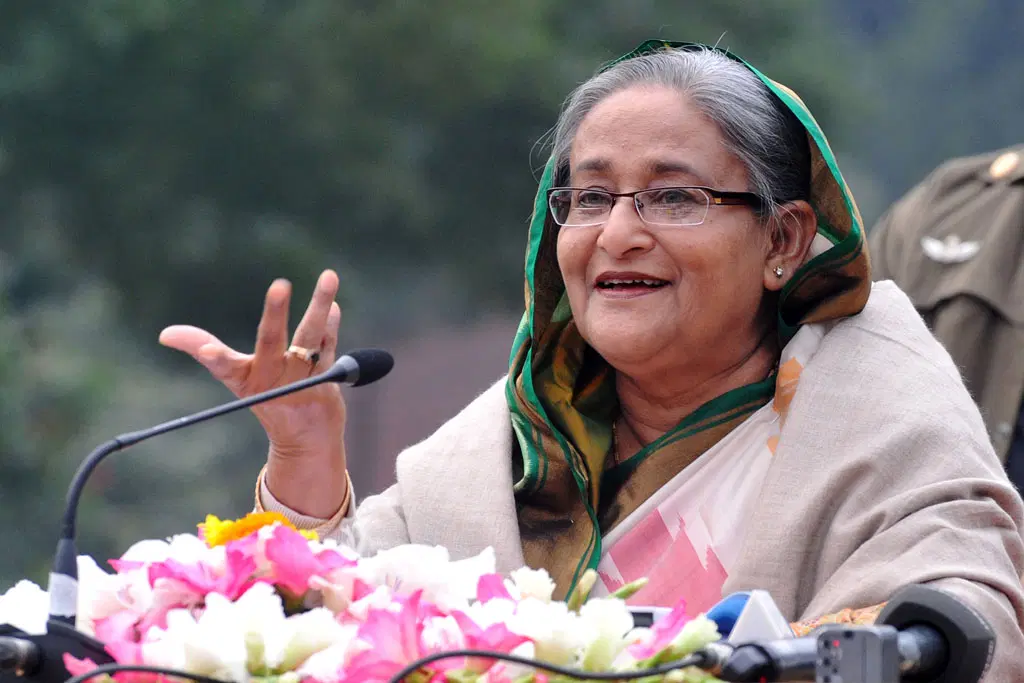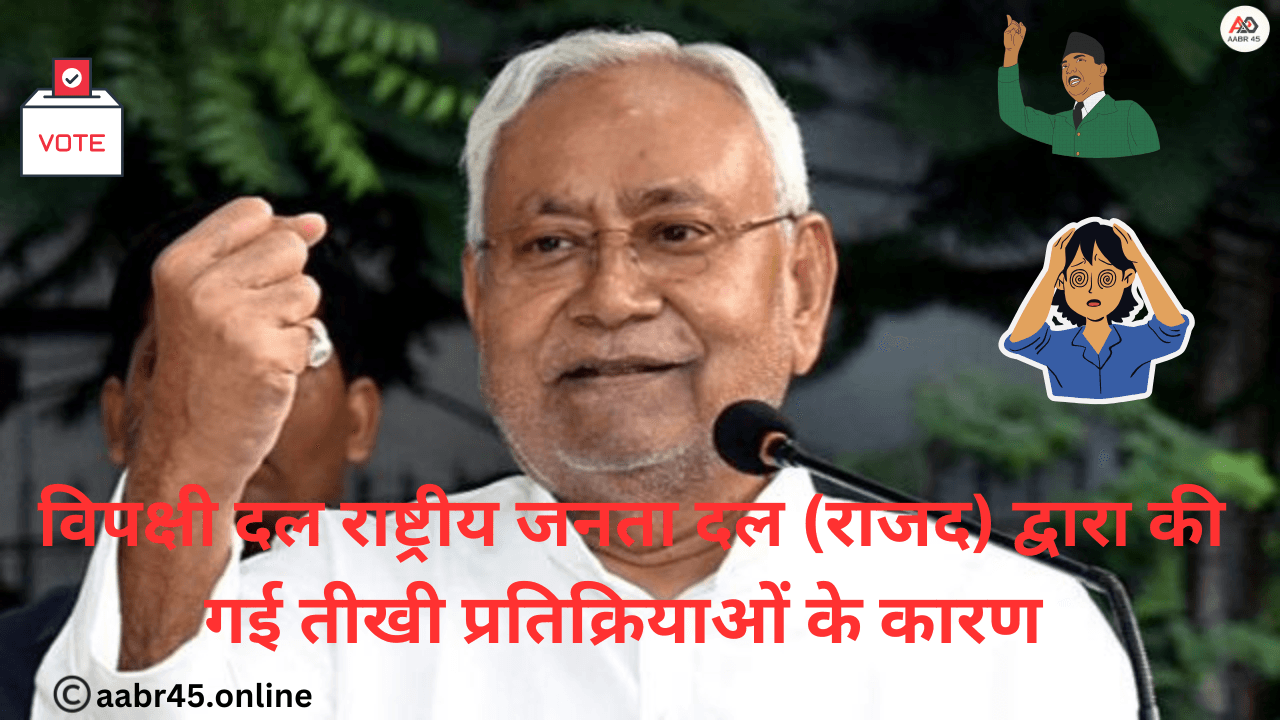
Bangladesh is currently experiencing a profound political shift with the resignation of Prime Minister Sheikh Hasina, a leader whose tenure has defined the country’s modern trajectory. Her departure comes amid rising political unrest, driven in part by student movements that have historically played a crucial role in the nation’s democratic struggles. This article delves into the context of Sheikh Hasina’s resignation, the role of student activism in shaping Bangladesh’s democracy, and the potential ramifications for the country’s relationship with India and its economy.
Sheikh Hasina’s Resignation: A Watershed Moment
Sheikh Hasina, leader of the Awami League, has been a dominant figure in Bangladeshi politics for more than a decade, having served as Prime Minister since 2009. During her time in office, Bangladesh saw significant economic growth, improvements in infrastructure, and advancements in social indicators such as health and education. However, her tenure was also marked by controversies, including accusations of authoritarianism, electoral fraud, and the suppression of political opposition.
In recent years, discontent with Hasina’s government grew, fueled by allegations of human rights abuses, restrictions on press freedom, and widespread corruption. The situation came to a head with large-scale protests and demands for her resignation, spearheaded by opposition parties, civil society, and notably, student groups. Facing mounting pressure and a deeply polarized political environment, Hasina ultimately chose to step down, a move that has sent shockwaves through the political landscape of Bangladesh.
The Role of Student Movements in Bangladesh’s Democratic Establishment

Student movements have long been a formidable force in Bangladesh’s political history, often acting as the vanguard of democratic change. From the Language Movement of 1952 to the more recent protests, students have consistently demonstrated their ability to mobilize public sentiment and challenge the status quo.
The Language Movement of 1952
The roots of student activism in Bangladesh can be traced back to the Language Movement of 1952, a pivotal event in the country’s history. When the Pakistani government attempted to impose Urdu as the sole national language, students in East Bengal (now Bangladesh) led a series of protests advocating for the recognition of Bengali as an official language. The movement, which resulted in the deaths of several students at the hands of police, was instrumental in fostering a sense of national identity and resistance against authoritarian rule.
The Liberation War of 1971
During Bangladesh’s struggle for independence from Pakistan, students were once again at the forefront, organizing protests, mobilizing public opinion, and participating in armed resistance. The student-led activism of this period was crucial in galvanizing the broader population to support the fight for independence, culminating in the creation of the independent state of Bangladesh in 1971.
Anti-Authoritarian Movements of the 1980s
In the 1980s, under the military dictatorship of General Hussain Muhammad Ershad, students played a pivotal role in the pro-democracy movement. Their relentless protests and strikes ultimately led to the downfall of the Ershad regime in 1990, marking a critical moment in the restoration of democracy in Bangladesh. The student movements of this era underscored the power of youth activism in challenging autocratic governance and advocating for democratic principles.
Contemporary Student Activism
In recent years, student activism in Bangladesh has evolved, leveraging digital platforms and social media to organize and amplify their demands. The 2018 student protests for road safety, sparked by the deaths of two students in a traffic accident, quickly grew into a broader movement demanding governmental accountability and reform. These protests highlighted the growing political consciousness among Bangladesh’s youth and their willingness to confront issues of governance, corruption, and human rights.
The Impact of Sheikh Hasina’s Resignation on India-Bangladesh Relations
Sheikh Hasina’s resignation has significant implications for India-Bangladesh relations, a bilateral relationship that has been characterized by both cooperation and tension. Under Hasina’s leadership, Bangladesh maintained strong ties with India, marked by collaboration on security issues, trade, and regional stability. However, her departure introduces uncertainty into this relationship, with potential shifts in Bangladesh’s foreign policy that could impact India.
Security and Border Management
One of the cornerstones of India-Bangladesh relations under Hasina was the effective management of security and border issues. The two countries collaborated closely on combating terrorism and insurgency, particularly in the northeastern region of India, where militants often sought refuge across the border. Hasina’s government was instrumental in extraditing militants and maintaining a zero-tolerance policy towards anti-India activities on Bangladeshi soil. Her resignation could lead to a re-evaluation of these security arrangements, depending on the stance of the new leadership in Dhaka.
Trade and Economic Cooperation
Economically, India and Bangladesh have enjoyed a robust trade relationship, with India being one of Bangladesh’s largest trading partners. Hasina’s government facilitated cross-border trade, infrastructure development, and energy cooperation, including the establishment of transnational energy grids and transportation links. However, with the political landscape in Bangladesh shifting, there may be changes in trade policies, tariffs, and bilateral agreements that could affect economic ties. India will need to navigate these changes carefully to maintain the momentum of economic cooperation.
Geopolitical Implications
Geopolitically, Bangladesh under Hasina was seen as a stable and reliable partner for India in South Asia, particularly in countering China’s growing influence in the region. Bangladesh’s strategic location and its role in regional organizations like SAARC and BIMSTEC made it a key player in India’s neighborhood policy. Hasina’s resignation may open the door for Bangladesh to reassess its foreign relations, including its engagements with China and other regional powers, potentially altering the balance of power in South Asia.
Economic Implications for Bangladesh
The political uncertainty following Sheikh Hasina’s resignation poses significant challenges for Bangladesh’s economy, which has been one of the fastest-growing in the world over the past decade. The country’s economic success has been driven by its booming garment industry, remittances from overseas workers, and steady foreign investment. However, the current political instability could disrupt this economic trajectory.
Impact on Foreign Investment
Foreign investors generally prefer stable political environments, and the current uncertainty in Bangladesh may lead to a cautious approach from international businesses and investors. Concerns over policy continuity, potential changes in regulatory frameworks, and the overall business climate could result in a slowdown in foreign direct investment (FDI). This, in turn, could affect critical sectors of the economy, including manufacturing, infrastructure development, and technology.
Challenges in the Garment Industry
Bangladesh’s garment industry, which accounts for a significant portion of the country’s export earnings, could also be affected by the political situation. Any disruption to the industry, whether due to strikes, supply chain interruptions, or changes in trade policies, could have far-reaching consequences for the economy. The industry is heavily reliant on international trade agreements and relationships, particularly with the European Union and the United States, and any instability could jeopardize these partnerships.
Impacts on Economic Growth and Development
The broader economic growth of Bangladesh could also be at risk if the political situation leads to prolonged instability. Government spending on infrastructure projects, social services, and economic development initiatives could be curtailed, leading to slower growth rates. Additionally, if the new leadership in Bangladesh is unable to swiftly restore confidence in the economy, the country may face challenges in maintaining its development momentum.
Conclusion
The resignation of Sheikh Hasina marks a significant turning point in Bangladesh’s political history, with far-reaching implications for the country’s democracy, its relationship with India, and its economic future. The role of student movements in driving democratic change has once again come to the fore, highlighting the enduring power of youth activism in shaping the nation’s political landscape. As Bangladesh navigates this period of transition, the country’s leadership will face the daunting task of maintaining stability, addressing the demands for democratic reforms, and safeguarding the economic gains of recent years. How Bangladesh manages these challenges will not only determine its own future but will also have significant implications for its regional relationships, particularly with India, and its role in the global economy.






